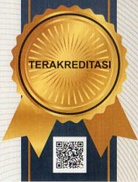The Effectiveness Of Buzz Groups Method To Teach Reading Comprehension Viewed From Students’ Learning Motivation (An Experimental Study At The Mechanical Engineering Department Students Of Balikpapan State Polytechnic)
Abstract
Full Text:
PDF (Bahasa Indonesia)References
Aebersold, Jo and Field Mary Lee. 1997. From Reader to Reading Teacher. Cambridge: Cambridge University Press.
Barkley. et al. 2001. Collaborative Learning Techniques. San Francisco: Jossey-Bass.
Borrich, Gary D. 1996. Effective Teaching Methods. 3rd Prentice Hall. Inc: New Jersey.
Brown, H. Douglas. 1994. Principles of Language Learning and Teaching. New Jersey: Prentice Hall Regency.
Burns, Anne. 1999. Collaborative Action Research For English Language Teachers. Cambridge: Cambridge University Press.
Cruickshank, Donald R, Bainer. 1999. The Act of Teaching. Boston: Macgraw-Hill College.
Elliot, Stephen. 2000. Educational Psychology: Effective Teaching Effective Learning. USA: McGraw Hill Company.
Grellet, Francoise. 1998. Developing Reading Skill. Cambridge: Cambridge University Press.
Harmer, Jeremy. 1998. How to Teach English. An Introduction to the Practice of Language Teaching. Longman: Wesley Longman.
Heilman, Arthur W and Blair, Timothy R. 1981. Principles and practices of Teaching Reading. Columbus: Charles E. Merill Publishin
Kennedy, Eddie C. 1981. Methods in teaching Developmental Reading Second Edition. USA: F.E Peacock Publishers, Inc.
Nunan, David. 1992. Research Methods in Language Learning. Cambridge: Cambridge University Press.
Nuttal, C. 1996. Teaching Reading Skills in a foreign language. Mexico: Heinemann.
Richards C., Jack. 1997. From Reader to Reading Teacher. Cambridge: Cambridge University Press.
Slavin, R. 1997. Educational Psychology: Theory and Practice (5th Ed.). Boston: Allyn and Bacon, Inc.
Tuckman, Bruce W. 1978. Conducting Education Research. New York: Harcourt Brace Jovanivich, Inc.
William, Eddie. 1999. Reading in the Language Classroom. London: Phoenix FLT.
DOI: https://doi.org/10.32487/jst.v2i2.140
Refbacks
- There are currently no refbacks.
Copyright (c)
View My Stats


